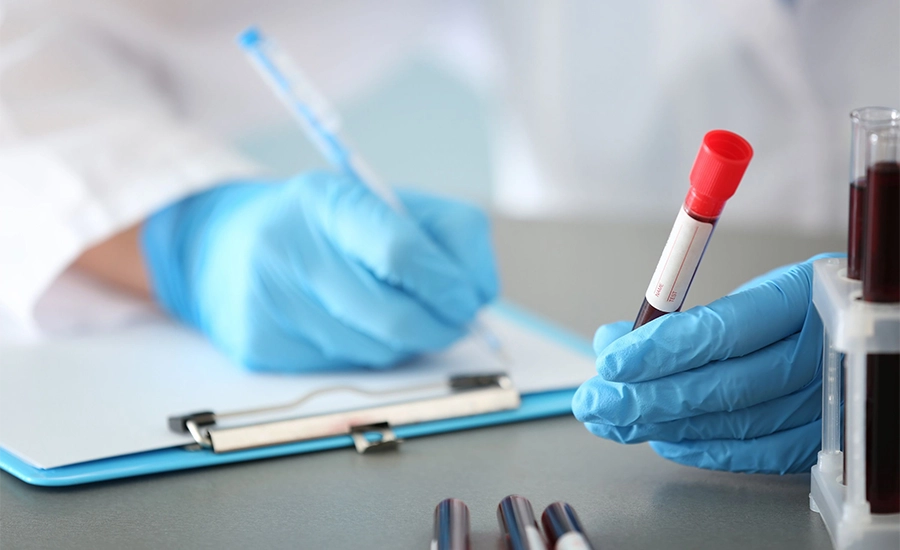Aging Parameters in Blood: Understanding the Science of Longevity
Aging is a universal process, yet how fast or slow we age can differ greatly from one individual to another. One of the most reliable ways to evaluate biological age is not by looking at the mirror but by analyzing what flows inside our veins: the blood. Modern blood analysis provides a powerful window into the body’s aging process. By studying specific aging parameters in blood, scientists, doctors, and health-conscious individuals can detect early signs of decline, monitor disease risks, and even design personalized anti-aging strategies.
This article explores in detail what aging parameters in blood are, why they matter, how they are tested, and what they mean for your health and longevity. We will also compare the cost of blood analysis in Turkey with other countries, showing why Turkey has become a popular medical destination.

What Are Aging Parameters in Blood?
Aging parameters in blood refer to measurable biomarkers that reflect how the body changes with time. Unlike chronological age (the number of birthdays you’ve had), biological age provides insights into the functional state of your organs and tissues. Blood, being a carrier of nutrients, hormones, and waste products, contains rich information about aging.
Some of the most common aging parameters in blood include
- Telomere Length – Shortening telomeres are a hallmark of cellular aging.
- Inflammatory Markers – C-reactive protein (CRP), interleukins, and TNF-alpha rise with chronic low-grade inflammation, known as “inflammaging.”
- Oxidative Stress Markers – High levels of free radicals and low antioxidant capacity accelerate tissue damage.
- Glucose and Insulin Sensitivity – Poor glucose control is linked to diabetes, obesity, and premature aging.
- Lipid Profile – Cholesterol and triglyceride levels indicate cardiovascular health.
- Hormone Levels – Testosterone, estrogen, DHEA, and growth hormone all decline with age.
- Vitamin and Mineral Levels – Deficiencies in vitamin D, B12, magnesium, and zinc impact energy, mood, and immunity.
Together, these markers paint a comprehensive picture of a person’s health trajectory.
Why Are Aging Parameters in Blood Important?
Understanding and tracking aging parameters in blood is more than a scientific curiosity—it has real-life health benefits:
- Early Disease Detection – Abnormalities in blood markers can reveal risks for diabetes, cardiovascular disease, dementia, or cancer before symptoms appear.
- Longevity Optimization – By identifying weak points, people can take preventive measures to slow aging.
- Personalized Medicine – Blood analysis guides doctors in tailoring lifestyle, diet, or medication plans.
- Mental Health and Cognitive Function – Certain blood parameters correlate with brain health, mood regulation, and memory.
Key Aging Biomarkers and Their Interpretation
Let’s take a closer look at the most significant blood biomarkers and what they reveal about the aging process.
- Telomere Length : Telomeres are protective caps at the ends of chromosomes. With every cell division, telomeres shorten. Once they become critically short, the cell either stops dividing or dies. Measuring telomere length gives an estimate of cellular aging. Longer telomeres generally mean better longevity potential.
- Inflammatory Markers : Chronic inflammation is one of the strongest accelerators of aging. A blood analysis that shows elevated CRP or IL-6 suggests the body is under constant stress. Managing inflammation through diet, exercise, and lifestyle changes can significantly slow the aging process.
- Oxidative Stress : Free radicals damage DNA, proteins, and lipids. High oxidative stress markers indicate accelerated aging. Antioxidant-rich foods, adequate sleep, and stress management are crucial to reduce this effect.
- Glucose and Insulin Levels : Poor glucose control not only causes diabetes but also accelerates cell aging through a process called glycation, where sugar molecules damage proteins. A fasting blood glucose test and HbA1c (average glucose over three months) are standard markers in blood analysis.
- Lipid Profile : As we age, cholesterol and triglyceride levels often increase. A high LDL cholesterol level is linked to heart disease, while HDL cholesterol is protective. Regular monitoring helps reduce cardiovascular risks.
- Hormonal Decline : Blood tests often reveal declining levels of sex hormones and growth hormone with age. This decline affects energy, muscle strength, mood, and bone density. Hormonal replacement therapies may be considered under medical supervision.
- Micronutrients : Deficiencies in vitamin D, B12, and magnesium are widespread in older adults. Blood analysis ensures these deficiencies are detected and corrected before they cause serious health issues.
How Is Blood Analysis Performed?
Aging blood tests are performed using standard venipuncture (drawing blood from a vein). Depending on the desired parameters, the samples are analyzed in a laboratory using advanced equipment such as flow cytometers, mass spectrometers, and ELISA assays.
Most people undergo a comprehensive blood analysis once a year, but individuals with health concerns or those pursuing longevity optimization may test every 6 months.
Who Should Get a Blood Analysis for Aging Parameters?
- Adults over 30 who want to monitor their biological age.
- People with family history of chronic illnesses such as diabetes, cardiovascular disease, or Alzheimer’s.
- Athletes and biohackers aiming to optimize performance and recovery.
- Individuals experiencing fatigue, brain fog, or unexplained weight changes.

Blood Analysis and Anti-Aging Medicine
Tracking aging parameters in blood is the foundation of anti-aging medicine. Physicians use these insights to recommend:
- Nutrition plans customized for metabolic needs.
- Exercise routines that support cardiovascular and hormonal health.
- Supplementation to restore missing vitamins and minerals.
- Medications when necessary (e.g., statins for high cholesterol).
- Lifestyle modifications such as stress reduction, sleep hygiene, and mindfulness practices.
The Global Cost of Aging Blood Tests
The price of comprehensive blood analysis varies significantly across countries. In Western Europe and the United States, these tests can be extremely expensive due to healthcare costs and insurance limitations. Turkey, however, has become a leading medical destination, offering the same high-quality diagnostics at a fraction of the price.
Below is a comparison of average prices:
| Country | Average Price for Comprehensive Blood Analysis (USD) |
|---|---|
| United States | $600 – $900 |
| Germany | $400 – $700 |
| United Kingdom | $350 – $600 |
| Turkey | $150 – $250 |
As shown, Turkey consistently provides the most affordable option without compromising medical quality. Many international patients travel to Turkey not only for aesthetic procedures but also for advanced blood analysis and anti-aging evaluations.
Why Turkey Is a Leader in Affordable Blood Analysis
- Lower Healthcare Costs – Operating costs and living expenses are lower than in Western countries.
- Highly Skilled Doctors – Turkish physicians are globally recognized for their expertise in internal medicine and preventive healthcare.
- Modern Facilities – Private hospitals and clinics use advanced laboratory technologies.
- Medical Tourism Infrastructure – Turkey has become a hub for patients seeking cost-effective, high-quality treatments.
How Often Should You Monitor Aging Parameters in Blood?
- Healthy adults under 40: Once per year.
- Adults over 40 or with chronic conditions: Every 6–12 months.
- Those under treatment or lifestyle changes: Every 3–6 months to monitor progress.
Future of Aging Blood Tests
Science is advancing rapidly, and in the near future, aging parameters in blood will become even more precise. Researchers are working on panels that can predict not just biological age, but also life expectancy and risk of specific age-related diseases. Artificial intelligence is being integrated into blood analysis, enabling doctors to provide ultra-personalized longevity strategies.
Aging is inevitable, but how we age is partly within our control. By regularly analyzing aging parameters in blood, individuals can take charge of their health, detect hidden risks, and adopt preventive strategies. From telomere length to hormone balance, every marker tells a story about the body’s journey through time.
Turkey stands out as one of the best countries to undergo these tests thanks to its combination of affordability, advanced medical care, and highly skilled professionals. Whether you’re a patient seeking answers or someone committed to living longer and healthier, blood analysis is a powerful tool in the quest for longevity.